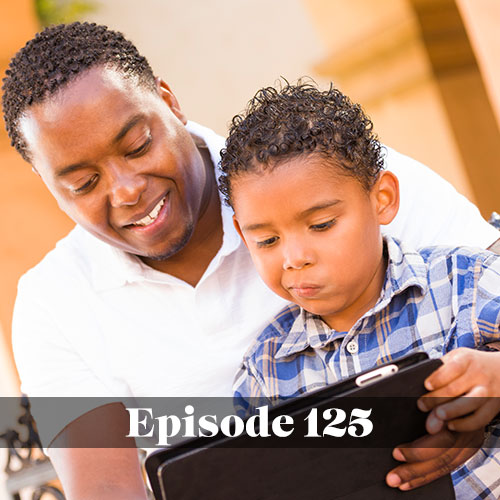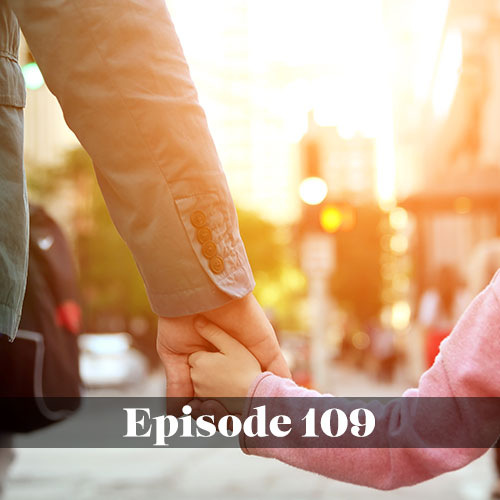In this episode, host Joel Gagne speaks with Dr. John Marschhausen, superintendent of Hilliard City Schools in Ohio, about the benefits of limiting screen time at home and at schools, and ways to get started.
Joel asks what the partnership between parents and educators should look like, and how the appropriate balance of screen time can be achieved.
Tech devices are a great way to connect with students and help prepare them for college and the workforce.
Dr. Marschhausen says that just because the district has a one-to-one initiative for students and devices doesn’t mean they are advocating for using devices at all times.
“I think one of the misconceptions that parents often have is that, when schools go one to one, the school is an advocate for a lot of screen time,” he says. “And that couldn’t be further from the truth in a lot of cases.”
In Hilliard, the partnership begins with open lines of communication, including the sharing of mission and vision with parents. Dr. Marschhausen says that means communicating with parents through whatever is their preferred method. Hilliard has worked diligently to streamline email communication, but administrators are careful not to over-communicate and create white noise.
Parents are able to learn more about screen time through the district’s Parents University. When the district rolls out iPads to new group of students they hold technology nights to teach parents what’s being done with the devices. Parents are able to see what’s going on, allowing them to be part of the digital wellness issue.
“We will bring in outside professionals and experts to engage parents… you bring in psychologists and doctors and pediatricians to talk to mom and dad about what is a healthy amount of screen time,” Dr. Marschhausen says. “All of those things are important.”
Joel and Dr. Marschhausen talk about how iOS 12 will be released in the fall and will have specific controls to limit screen time. The district plans to hold training sessions.
Joel asks what digital wellness looks like to Dr. Marschhausen.
“Well, I think part of it is age appropriate. Part of it is, in our younger grades you don’t want your early primary students on their devices for more than say half an hour at a time or a couple hours in a day,” Dr. Marschhausen says, admitting he is a bit old school and still wants kids to enjoy reading physical books. “We want those youngsters to develop social skills.”
Schools and society as a whole have always had to manage new technology, from cable TV to video games and now personal connected devices.
“The technology is just a tool,” he cautions. “It will never replace that face to face.”
Dr. Marschhausen says the challenge is in finding a tailor-made solution, knowing there is no silver bullet that works for all districts. He credits the Hilliard team for buying in.
Dr. Marschhausen talks about how new tech is always changing the game. He points to the next iOS update, which is expected to allow FaceTime with many users at the same time.
“So you’ve got to be out ahead,” he says. “All of this information is out there. Do you have someone who’s tuned in, do you have someone who is adept in your organization at creating a 35- to 40-minute program that moms and dads (can take).”
Hilliard uses a variety of products and services, including Apple devices and Google education products and the Canvas learning system.
Joel asks Dr. Marschhausen about digital safety.
“I think one of the most important things is building a culture where our students talk about, ‘see something, say something,’” Dr. Marschhausen says. “It’s nearly impossible for us, as the adults, to monitor every place our kids are. And every time we think we find the social media networks or the platforms our kids are engaging with, there are new platforms that are coming about, and ways that they’re keeping things from us.”
Dr. Marschhausen closes with three things for superintendents to know. The first is to get outside of the school environment and engage with medical and healthcare professionals. The second is that teachers are the most valuable resources. And finally, build a network of other superintendents and people you trust.
“We don’t compete in schools anymore, we collaborate,” Dr. Marschhausen says.
Got a question or topic you’d like covered in an upcoming We Love Schools podcast? Email us at info@weloveschoolspodcast.com
First time listening to We Love Schools? Learn more about our weekly podcast.
Interested in learning more about how the Allerton Hill Communications team can help your school with communications? Contact us today.






